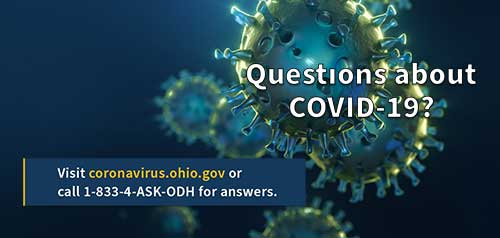Henry County is limiting public or private gatherings to no more than 10 people, effective immediately, and closing all businesses except those listed as essential, and Ohio has put in place a “stay at home” order.
Henry County
Workplaces may have more than 10 people on site.
As of 5 p.m. Sunday, these are the businesses allowed to stay open in Henry County. The ordinance is in effect until May 23.
Essential county/local government offices and services
Grocery stores
Funeral homes, provided that no more than 10 people are present during services
Health care service providers
Pharmacies
Banks/lending institutions
Gas stations
Motor vehicle repair services
Restaurants and bars (service is limited to carry-out and delivery)
“Dollar” and convenience stores
Utility and garbage removal services
Laundromats and dry cleaning
Janitorial services
Veterinary services
Legal services
Media
Home improvement businesses and hardware stores
Postal services, trucking and delivery services
Agricultural operations and businesses engaged in the manufacturing of food product
Energy delivery businesses and related services, such as propane delivery
Telecommunications and cellular services
Information technology services
Utility and infrastructure maintenance and repair
Daycare services for businesses that are permitted to remain open
Public parks and outdoor recreational facilities, provided that groups of no more than 10 gather and patrons utilize appropriate social distancing
Golf courses, provided no motorized golf carts may be utilized
Other businesses as requested in writing by Henry County Health Department, Henry County Board of Commissioners or Mayor of New Castle after being determined to be necessary to support critical and necessary services and functions
Anyone violating the ordinance shall be fined $200 upon the first violation and $2,000 for each subsequent violation. Each day a violation occurs shall be a separate offense.
Ohio
On Sunday, March 22, under the direction of Ohio Governor Mike DeWine, Ohio Department of Health Director Amy Acton issued a director’s order to require all Ohioans to stay in their homes to prevent the further spread of COVID-19 beginning at 11:59 p.m. EDT on Monday, March 23, until 11:59 p.m. April 6, 2020.
This order prohibits holding gatherings of any size and closes all nonessential businesses. Playgrounds are closed because they pose a high risk of increasing transmission.
It does NOT prohibit essential activities like going to the grocery store, receiving medical care, or taking your pet for a walk. Residents can return home from out of state and can leave the state.
Essential services will still be operational including, but not limited to:
• Grocery stores
• Gas stations
• Pharmacies
• Police stations
• Fire stations
• Hospitals, clinics and healthcare operations
• Garbage/sanitation
• Public transportation
• Public benefits (i.e. SNAP, Medicaid) hotlines
Unless your work is an essential function (i.e. healthcare provider, grocery store clerk, first responder), you should stay home. If you have been designated essential by your employer, you should continue to go to work and practice social distancing. If you are experiencing symptoms or are currently in isolation, you should stay at home and follow the guidelines provided by your physician.
If you are feeling sick, call your doctor, a nurse hotline, any telehealth hotline set up specifically for COVID-19 (check with your insurance company) or an urgent care center. If you are experiencing symptoms or are currently in isolation, you should stay at home and follow the guidelines provided by your physician. Do not go to an emergency room unless necessary. Nonessential medical care like eye exams and teeth-cleaning should be postponed. When possible, healthcare visits should be done remotely. Contact your healthcare provider to see what tele-health services they provide.
If it is not safe for you to remain home, you are able and urged to find another safe place to stay during this order. You may call the Ohio Domestic Violence Hotline at 800-934-9840 or contact your local law enforcement.

